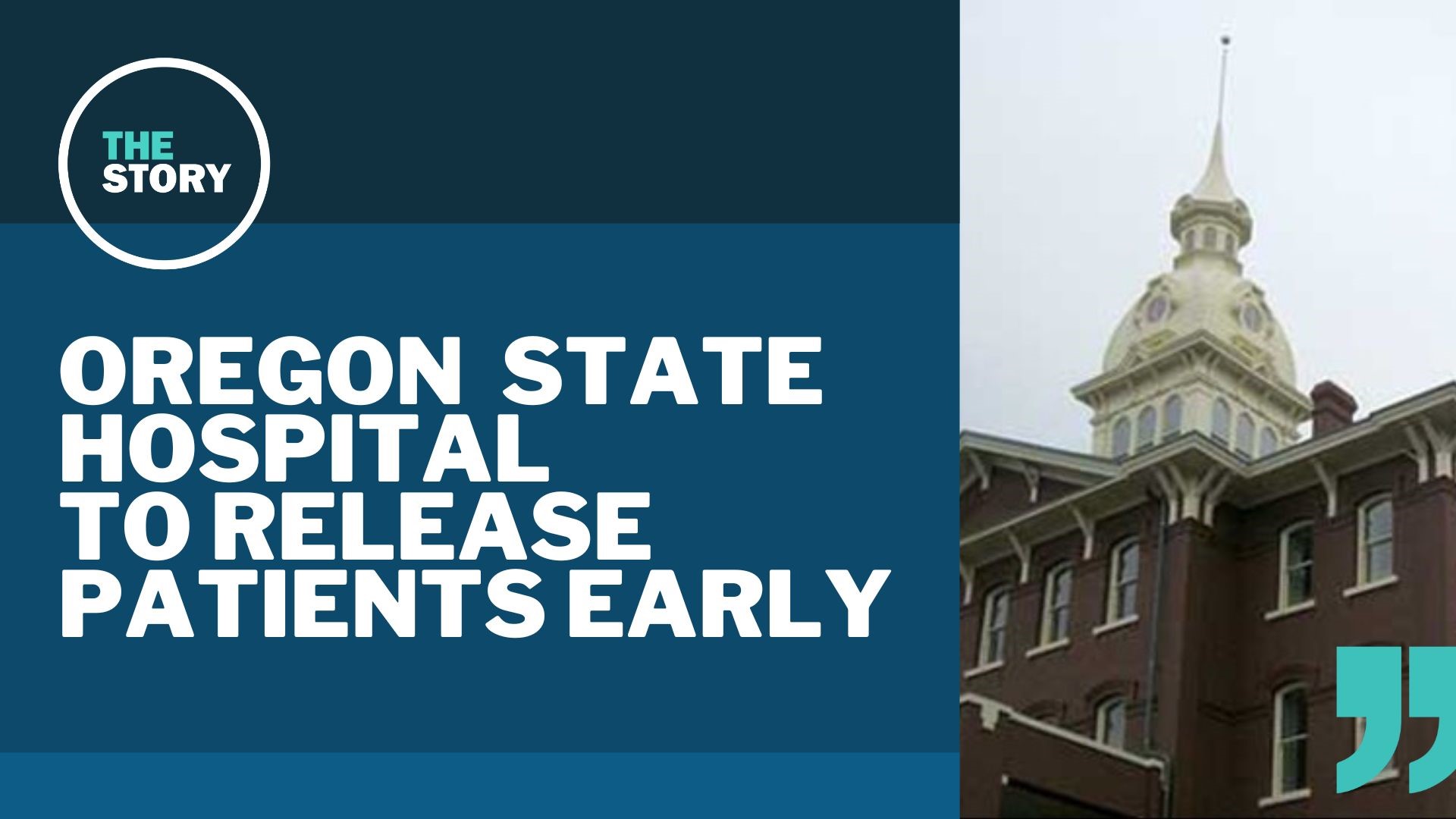SALEM, Ore. — Oregon's only state-run psychiatric facility is so full that it's been ordered to start releasing patients early — specifically those who are awaiting trial for criminal charges.
Starting Oct. 12, Oregon State Hospital will release 23 aid and assist patients, then continue to release a group of patients each month through December 2023. The decision has prompted concerns from mental health professionals across the state.
When a person commits a crime but is deemed unfit to stand trial due to mental illness, they're often sent to jail where they wait to be admitted to Oregon State Hospital to receive treatment. They're called "aid and assist" patients, and the goal is to get them the treatment they need in order to participate in their own defense.
Over the past few years, there has been a surge in aid and assist patients at the state hospital, and it's increased the wait times for other inmates waiting to get in.
Inmates suffering from mental illness are supposed to wait seven days or less before being admitted. As of July, their wait times were closer to 40 days, according to the Oregon Health Authority.
The hospital has a capacity of about 800 patients, and roughly half are aid and assist patients — about 400. To put that in perspective, there were fewer than 100 aid and assist patients at the hospital in the year 2000.
Meanwhile, the number of people admitted to the hospital on a civil hold has dropped significantly, from around 400 to almost zero. These are people who have not been charged with a crime but still need psychiatric help in a secure setting.
State leaders, including OHA director Patrick Allen, have taken notice.
"Those numbers have changed drastically, particularly driven by the aid and assist population increasing to about 400 patients. The result of all that change has really been to crowd out civil patients. There are just a handful of civilly committed patients in the hospital, which you all working with behavioral health issues in your community know," said Allen.
RELATED: Uncommitted: How high standards are fueling a cycle that can fail people with serious mental illness
In other words, there isn't room for a lot of people who need treatment because of the number of patients at Oregon State Hospital who are awaiting criminal charges.
On Sept. 1, a federal judge ordered Oregon State Hospital to begin releasing a group of aid and assist patients each month to make room for new patients. The exact number of patients that will be released each month is unclear.
Under the order, aid and assist patients charged with a misdemeanor will be treated for 90 days then released; those charged with a non-violent felony will be treated for up to six months and those with a violent felony will be treated for up to a year.
Jesse Merrithew with Metropolitan Public Defenders advocated for the federal judge's order the hospital to begin releasing aid and assist patients. He spoke at a virtual town hall meeting on Sept. 6 about the judge's decision.
"We were facing a sort of intractable problem with more people going into the hospital than coming out. We, representing the plaintiffs, believed something needed to be done about that. Because the effect was not only are they not now complying with the underlying Mink injunction, but there wasn't any hope of compliance in the near term," he said.
But the new order has also drawn concerns from people like Multnomah County Judge Nan Waller, who has spent 30 years trying to make the intersection of mental health and criminal justice a better experience for all involved.
"I've talked to CARE Oregon, I've talked to you, I've talked to the counties that we will be in the same position. The justice-involved population with behavioral health issues is not a crowd that a lot of people are jumping up and down and saying, 'We will take them,'" said Judge Waller. "And I worry that we will be in the same position except that people are going to end up on the streets, which I think, under some circumstances that may be the only option that is available, and that may not be something that creates difficulties. But in some circumstances it will, and I think that just like the justice system has responsibility to community safety, I know that you agree, so does the behavioral health system."
Turns out this fight has been going on more than 20 years.
In 2002, Disability Rights Oregon sued the state over the same problem, alleging it was taking too long for people with mental health issues facing criminal charges to get into the hospital. Instead, they were waiting in jail cells. The court agreed, and the state appealed and lost.
A spokesperson for Disability Rights Oregon told KGW the state was doing a great job managing the population at Oregon State Hospital until just before COVID, and that it's been a problem ever since.

